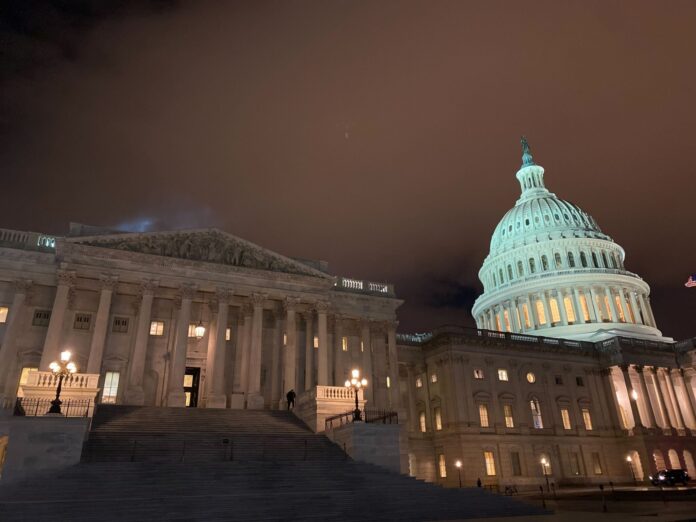
WASHINGTON (States Newsroom) — The U.S. Senate voted overwhelmingly early Tuesday to approve a $95 billion emergency spending package for Ukraine, Israel and Taiwan.
The measure now goes to the U.S. House, where Speaker Mike Johnson hasn’t committed to putting the bill on the floor for debate or votes amid opposition to the military and humanitarian assistance from some in his conference’s right flank.
The Senate’s 70-29 vote to approve the bill shows broad bipartisan support in at least one chamber of Congress. However, it’ll need House approval before it can go to President Joe Biden’s desk for his signature.
Johnson, a Louisiana Republican, released a statement late Monday evening indicating he disapproves of the Senate bill in part because it does not contain any immigration provisions after Senate Republicans tanked a bipartisan border security deal that was also opposed by Johnson and House GOP leaders.
“The mandate of national security supplemental legislation was to secure America’s own border before sending additional foreign aid around the world. It is what the American people demand and deserve,” Johnson said.
“Now, in the absence of having received any single border policy change from the Senate, the House will have to continue to work its own will on these important matters. America deserves better than the Senate’s status quo.”
Senate Minority Leader Mitch McConnell, a Kentucky Republican, supported the bill, saying it is in the best interest of U.S. national security.
“Our adversaries want America to decide that reinforcing allies and partners is not in our interest, and that investing in strategic competition is not worth it,” McConnell said. “They want us to take hard-earned credibility and light it on fire.”
Republicans voting to approve the bill included Arkansas’ John Boozman, West Virginia’s Shelley Moore Capito, Louisiana’s Bill Cassidy, Maine’s Susan Collins, Texas’ John Cornyn, Idaho’s Mike Crapo, North Dakota’s Kevin Cramer, Iowa’s Joni Ernst, Iowa’s Chuck Grassley, North Dakota’s John Hoeven, Louisiana’s John Kennedy, McConnell, Kansas’ Jerry Moran, Alaska’s Lisa Murkowski, Idaho’s Jim Risch, Utah’s Mitt Romney, South Dakota’s Mike Rounds, Alaska’s Dan Sullivan, South Dakota’s John Thune, North Carolina’s Thom Tillis, Mississippi’s Roger Wicker and Indiana’s Todd Young.
Oregon’s Jeff Merkley, Vermont independent Bernie Sanders and Vermont’s Peter Welch were the three Democrats who voted against passage.







